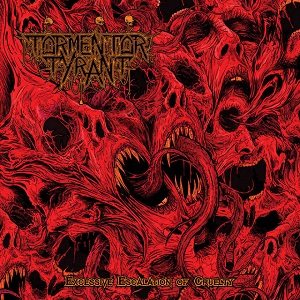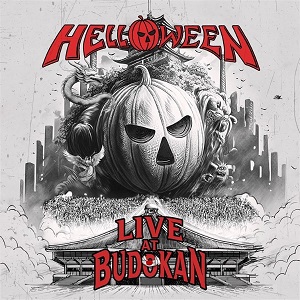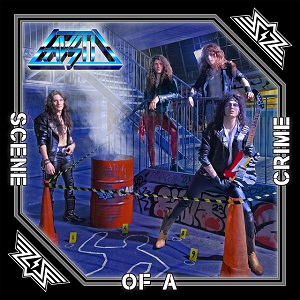EMPEROR's IHSAHN - "In 1991 Starting A Black Metal Band As A Career Choice Was The Worst Idea You Could Possibly Have"
March 30, 2020, 4 years ago
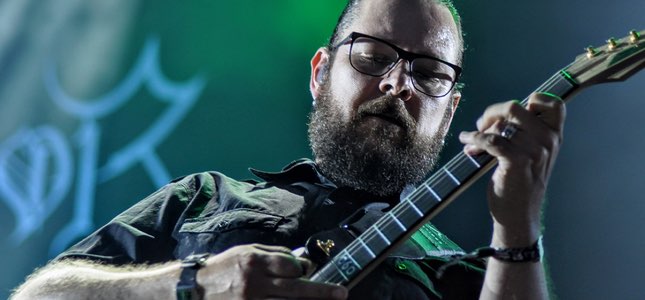
Think about it. Hailing from the darkest depths of Norway - where the only international musical success for decades was Aha, until Dimmu Borgir cracked the Billboard Top 50 in 2007 with In Sorte Diaboli - Emperor, on their own terms, have done the unthinkable. Took a form of already extreme music and created a worldwide phenomenon to the point where they have been playing to tens of thousands of people across the globe, celebrating Anthems To The Welkin At Dusk. And with the band closing the door on anything creative aside from live activity, frontman Ihsahn continues to tread new territory as a solo entity, most recently with the new five-track EP called Telemark, featuring unique takes on Iron Maiden's Killers classic "Wrathchild" and Lenny Kravitz’ "Rock And Roll Is Dead”. A true visionary, BraveWords peers into the mind of this ‘mad scientist’ genius that always is challenging the way we view and consume art.
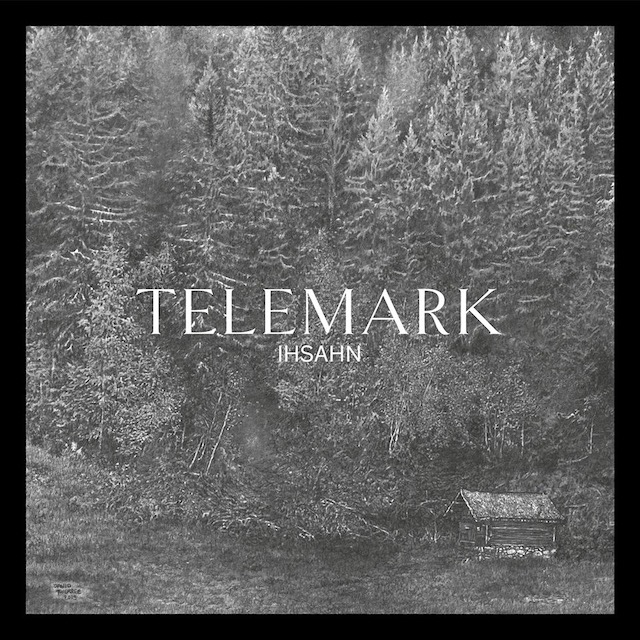
“We’re at a time in music when there’s a lot of nostalgia,” Ihsahn begins, keeping in mind he told us previously that Iron Maiden’s Seventh Son Of A Seventh Son taught him how to play the guitar. “I remember some years back when we had our 20th anniversary of our first album and we were still some of the youngest headliners. It’s good to see though. I grew up on Iron Maiden. I remember my father took me to see Iron Maiden, and I’ve taken my son to see Iron Maiden. It’s the value of having a brand, because the way the music industry works now, there’s no time to build a relationship - so I think that’s why many of these older bands survive. They have had time to dig their roots deep. Then, with the demand of that, it becomes a marketing thing, a commercial thing, there’s money involved, and then you have to bring all of these people who have these roots together. That’s something that we wanted to avoid. We’ve come to a point where we do the things we decide to do. There’s no pressure. Let’s face it, it’s a huge privilege. If someone would have told me a fraction of what I was going to do, travel the world and share stages with some of my biggest idols, I would have died of a heart attack at 10 years old. Gratitude has become a big part of how I relate to being here.
BraveWords: But as a metal fan, it’s much more than that, because you’ve done things on your own terms and it’s so extreme. 30 years ago, did you think you’d be able to travel outside of your home town with that kind of music?
Ihsahn: “No, I would have never thought that back then, but that was also never the motivation. We didn’t know anyone from Norway with an international career. Starting a black metal band in 1991 as a career choice was the worst choice ever, the worst idea you could possibly have - but we did this music purely for artistic motivations. There was no money involved and when we got the record deal we were just thrilled that someone would send us money to go a proper studio where we could try to get closer to this musical vision we had. We know what we want now, we have more experience, we can go all in and create this larger than life, atmospheric sound. That was the motivation. But the idea that this would be our livelihood in any sense? No. If we tried to make compromises, cut corners, cut mellow bits out so that we might fit into this crowd or that one, it wouldn’t be unique. This is a happy consequence of us being uncompromising, it became its own thing. People related to it on very genuine and authentic terms. This is something I’ve thought about a lot, and this is how I still relate to making music myself. For me its basically doing the same things over - we have this Bathory stuff and then we love horror movie soundtracks, so let’s bring that into it and see how that sounds. And I’m still there - I do play guitar but I also love the sound of huge 808s and trip hop. I can’t relate to it culturally, or the aesthetics of it, but I love that sound - so I put that into my music and see how that sounds.
BraveWords: What did your father think when you played him the first Emperor demos?
Ihsahn: “He got into Iron Maiden through me. He was more a fan of blues - he was super supportive. I’m very thankful for that. I played in local bands before, but when I joined the first band with Samoth, he lived 35 minutes away from me and he was a year older than me and in a band with some older guys. I was 13 and the rest of them were practically grown up because they were 16 and had mopeds, you know? They also had experience - they recorded a track in the studio once, so to me they were professionals, and I got to join their band. My father, he would drive me back and forth, like seven times a week, in between shifts and all that. He was super supportive, bought me my first guitar and all that. And we would jam.”
BraveWords: That’s very heartwarming. This new EP kind of came out of the blue.
Ihsahn: “You know, I’ve been doing this for a while, and actively I’ve been releasing music for a longer time now with my solo albums. There are seven solo albums, released in two-year cycles. The music industry is totally different now, and without me really realizing it, I ended up doing everything at the same time. I’m doing press for live shows, and I’m doing press for new releases, and I’m rehearsing live shows while I’m recording. Instead of treating it like I have all these balls in the air, I wanted to find a way to get to do what I love to do, and make it fit with all the other stuff I have to do. And you know I am always very conceptual with music, and I always have strict concepts with each album, but still I wanted to have an ebb and flow. I wanted it to have a flow like Iron Maiden records - there’s a strong opener, there’s a long epic song at the end, that’s the grouping, how it’s supposed to be. But then again, as an example this first EP that started with one song in the title track where the guitar riffs have folkish elements - and I’m not really big on folkish elements, but I have a few riffs that have been with me for some years and I’ve wanted to implement them but I could never find space for them in an album where they wouldn’t stick out like a sore thumb. But for a limited format like this Telemark EP, it’s all in Norwegian, it’s written for a specific ensemble of just two guitars, bass drums, screaming vocals - no clean vocals, and a brass section mind you - but the whole EP is written for that strict format. It’s all about my musical roots, and there’s old-school back and white drawings. David Theiree drew the art based on my wife’s photographs from our area, so it’s really rootsy. And still, that sound would be too much for a full EP. So there was room for me to do this with one song, and instead of me doing a new concept for another album, I could do these two EPs because I’m already recording the second one which will be the cover image of this one and the other side of what I do. These are two extremes, and in the mean time I will do specialized live sets based on the aesthetics of this Telemark EP, where I will build the whole set - I will play guitar - but also pick songs that have the same aesthetics, that are my most extreme things. Consequently, when I do the second EP I hope to do other I’ve sets where I purely focus on the more mellow, more progressive side. It breaks the routine, but in a practical sense I get to do the same as I would do. I still get to write and record 10-15 songs in a two-year period but the difference is just the way I present it. It doesn’t change that much but it gives me the opportunity to meld the live and release things more conceptually.”
BraveWords: And the covers - explain the covers - do you have them planned for the next EP?
Ihsahn: “Yeah, I do!”
BraveWords: It’s a secret though.
Ihsahn: “It’s a secret, yeah. Basically, I picked the cover songs first before I started writing the material because I had an idea of how I wanted it to sound. I wanted it to have a pure ‘rock band in the room’ kind of sound. And Iron Maiden is like that - late Iron Maiden - Seventh Son, Somewhere in Time, is more produced, more epic, its kind of strange even to myself that my first Iron Maiden cover songs would be something from the early era. But it was the aesthetics of the music - and also on a practical note that I’ve heard other black metal versions of old heavy metal tracks and they pick songs where they have a simple - it’s not riffing - and the melody is gone. But for ‘Wrathchild’, the melody of the vocals follows the actual riff so much, so that you can do the extreme vocals without losing melodic intent - so there was also a musical, practical point to it. So that was the reason, but also it’s a great song!”
BraveWords: Those first two records - Iron Maiden and Killers - changed music. And then Bruce Dickinson came along and brought it to another level.
Ihsahn: “But they are still amazing! And Lenny Kravitz - first of all its a great rock song, but definitely had that kind of old school aesthetics to the sound, a rock and roll sound. And also the message of that song is kind of black metal, you know? Rock and roll is dead is really anti-all the bells and whistles, fame, glory - it’s all about the rawness of rock music. It’s really critical of all the commercializing, in the same spirit as early black metal and I guess in the same spirit as all underground movements that get commercialized, and there’s a reaction to that. So, conceptually, since I was going back to my roots, both musically and lyrically, it fit into the concept. “
BraveWords: Did you have any worry from a fan perspective about covering Lenny Kravitz, although he does know how to rock.
Ihsahn: “He does! Sometimes I get a feeling that when I put saxophone in my music, or I use Moog, bass, people assume its a way for me trying to provoke people. Like, ‘yeah, let’s see what they say if I do Lenny Kravitz!’ But I never think like that. I think more like, ‘I love this.’ I never really think of the consequence, I never consider that. I can assure you, it’s never meant as a provocation. I don’t see any point of trying to do that. I just do what I think feels right.”
BraveWords: Any thoughts as you wind down anniversary celebrations with Anthems To The Welkin At Dusk? It was beautiful to hear an album that you hold dear, and experience it live.
Ihsahn: “I guess we connected with something, with that album. It’s always amazed me how people who were probably not even born yet still pick up this album. We were in our late-teens, beginning of our 20’s, all of that energy and insecurity, there were so many mutual feelings that went into the music - and we channeled that. And I think regardless of which era, when you get to that age, people connect to that youthful energy that was in there. So what we lacked in skill and experience, we made up for in attitude and emotion. I think that is not to be underestimated. Especially when it comes to music like that - it comes through in the vocal performance that this is heartfelt, this is for real. You can connect with it, like I connected with so many of my favourite albums. For some reason, people seem to have a special relationship to that album in particular.”
(Photos by Mark Gromen)




